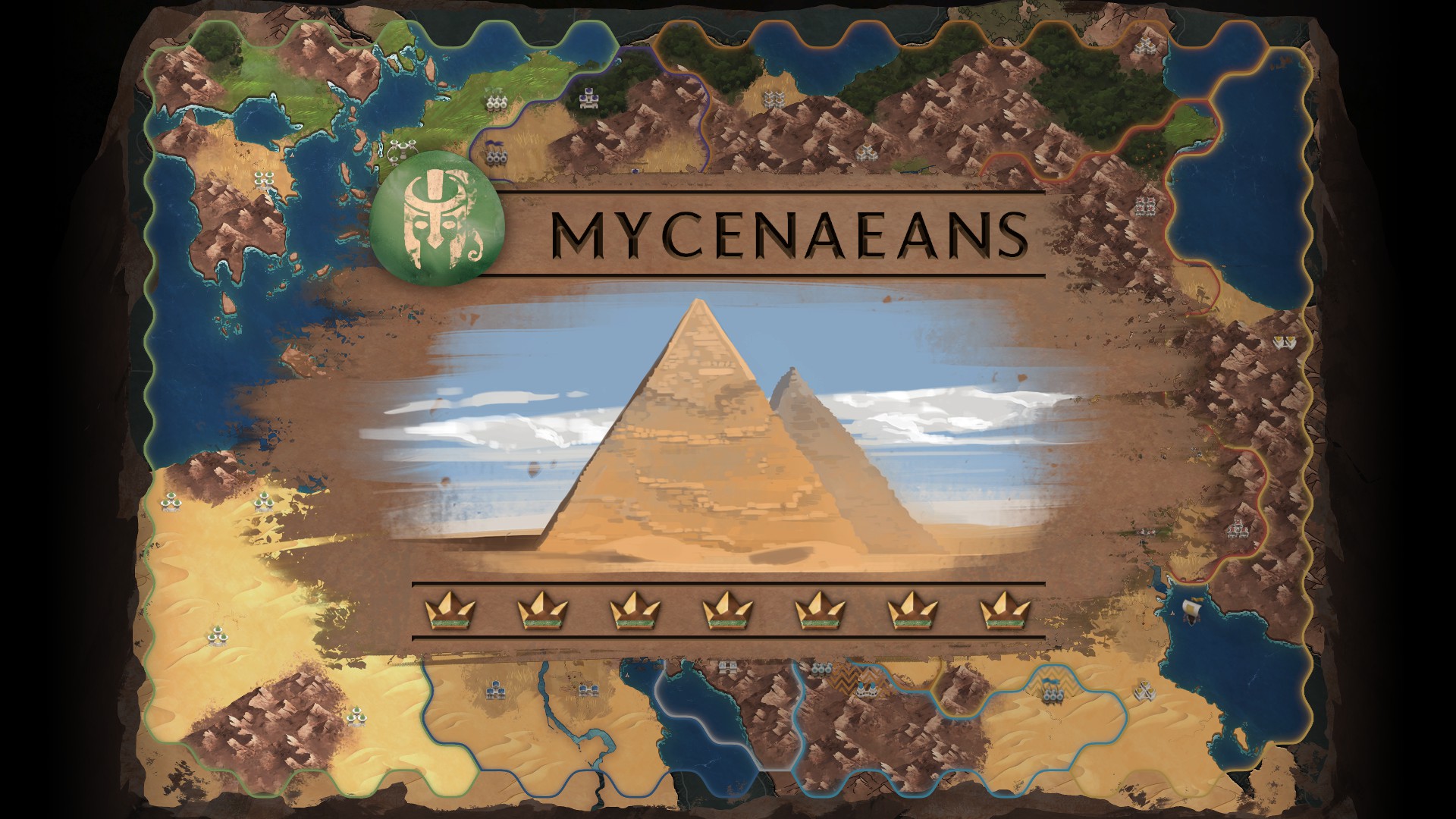The name Ozymandias is probably best known in modern culture as a character in the comic Watchmen. That character takes his name from a poem by Percey Shelley, husband of Frankenstein author Mary Shelley. Shelley, in turn, got the name from a Greek translation of Pharaoh Ramesses II’s throne name, Usermaatre. If you’ve taken a high school history class (or played Civilization) you know Ramesses as a powerful, long-lived Pharaoh and the tyrant described in Exodus.
It’s fitting that The Secret Games Company’s quick-playing empire builder takes its name from the mighty king, whose works made his foes despair. In Ozymandias, you’re tasked with leading your Bronze-Age culture to greatness via a simple, abstract interface. Once things get going, constantly-shifting borders guarantee that the people of far-off cities will know your works and your name… even if they pronounce it incorrectly.
Ozymandias is one of the many games currently sharing its demo as part of Steam’s Next Fest, which continues until 28 February. Here’s what we’ve seen so far:
Gameplay
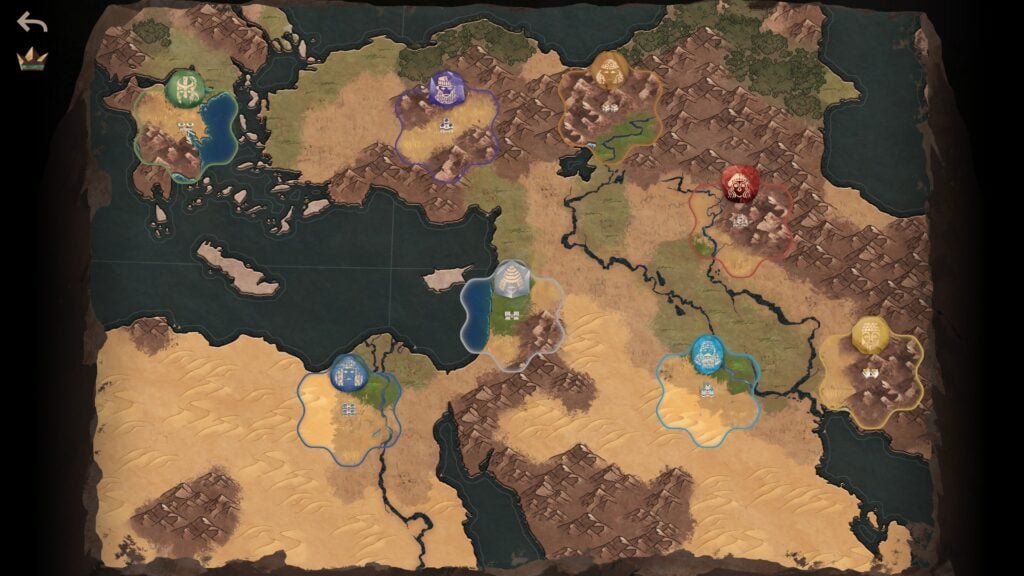
Ozymandias is primarily an economy sim. The territory you control and the cities you build generate food, wealth, knowledge, and power. The exact output of each tile depends on the terrain type and how much you’ve invested in your ability to exploit that terrain. The Egyptians would do well to maximize the yields of rivers and deserts before striking out to sea, while the Assyrians will need to conquer the harsh hills to fuel their expansion. By spending knowledge, you can cause a terrain type to generate more of the yields you want.
Food is used to claim new tiles and, in large quantities, to found and expand cities. Moving armies and navies to a new location also costs food, but there is no limit to the distance they can travel in a turn as long as you can feed them on the journey. Wealth is spent to recruit new armies and navies, but before that can happen you’re better off investing it in infrastructure; a percentage of all your resources is lost to waste, corruption, and accidents each turn, and by spending money on a resource you can reduce (if not eliminate) this loss.
Power is the most abstract of the game’s resources, as well as the most essential once other empires start eying your greener pastures (or you theirs). Each tile projects power onto its adjacent tiles; if an empire pushes more power onto a tile than its owner, it becomes threatened. A threatened tile is conquered the following turn if the balance of power is not restored.
Naturally, power is both expensive and essential. A seafaring empire might want to invest in the power generated by ocean tiles or purchase navies to ply the waves. An army or navy projects additional power onto adjacent tiles, but the limited quantity and expense of fielding them means they can’t be everywhere at once. You’ll have to choose whether to threaten a weak neighbor or check the expansion of a nearby aggressor.
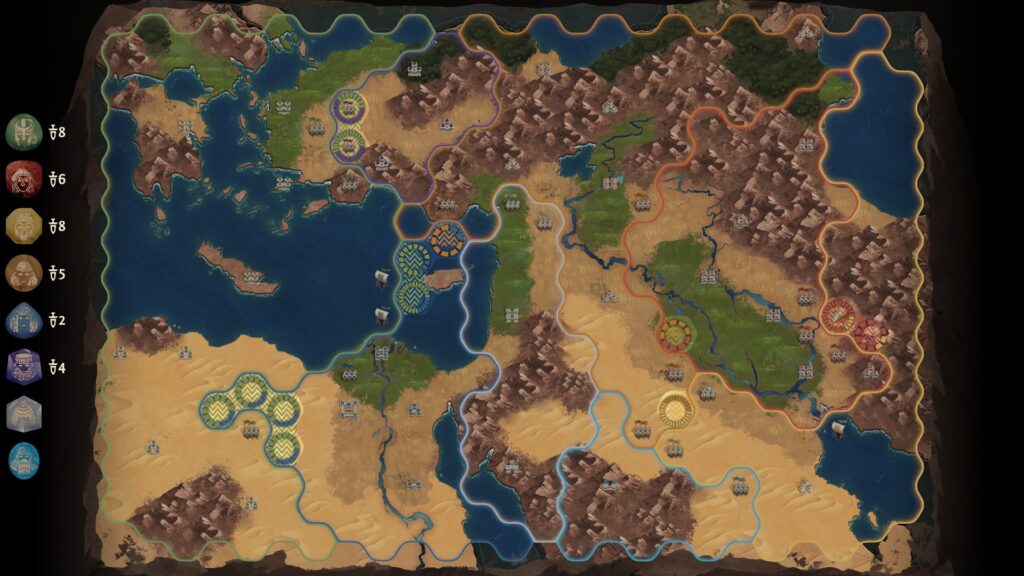
With all that going on, how do you actually win? At the beginning of each campaign, the game selects seven random Wonders that act as victory conditions; building a Wonder requires satisfying its hefty requirements. The Great Lighthouse, for example, demands an expansive empire that controls dozens of hexes, while the Hanging Gardens require a huge reserve of money in the palace treasury at one time. The harder a Wonder is to build, the more Crowns it grants (between one and three). The first player to hold seven Crowns simultaneously wins.
If an empire can eclipse the requirements of a held Wonder, they can steal the Wonder and its Crowns from the current owner. For example, if the Mycaeneans construct the Mausoleum after successfully capturing an enemy city, they’ll have the single Crown it offers… but if the Egyptians make a successful campaign into Canaan and conquer two cities, with no answer from the Mycaeneans, they will claim the Wonder for themselves until somebody can boast three conquered cities.
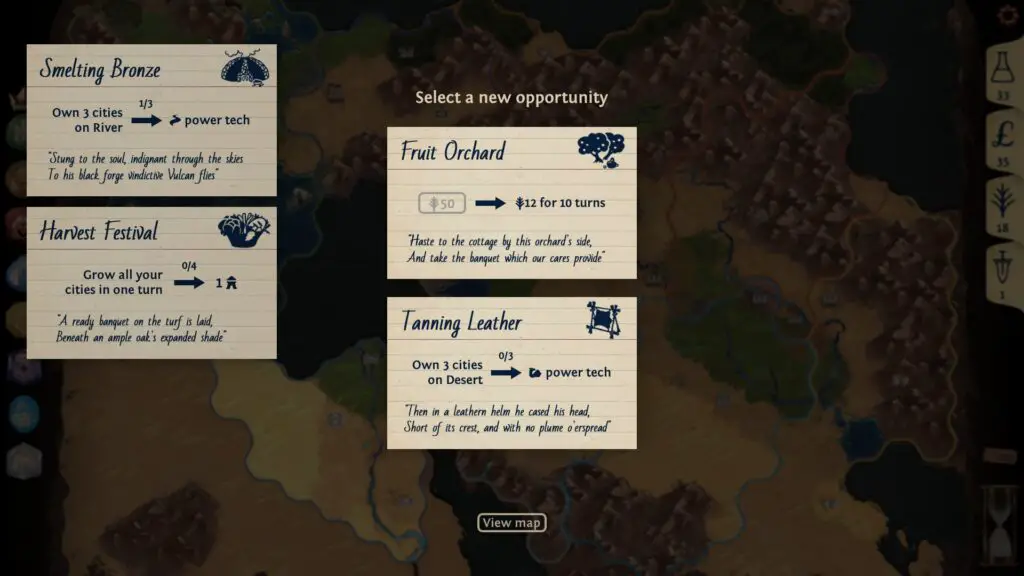
While the game doesn’t have a traditional tech tree per se, each turn players are offered their choice of two Opportunities, quests that offer potent rewards. An empire that is hoping to develop Irrigation might be tasked with settling multiple cities on river tiles, and be rewarded with free upgrades for those tiles when all is said and done. A player can have up to three active Opportunities at one time, and taking on a new one requires abandoning a current Opportunity if there is no room.
Graphics & Sound

Each map in Ozymandias is a single screen – no scrolling necessary. The slow rate of border expansion means that you won’t need to bounce around to the four corners of the map, and you can easily tell at a glance what the other empires are up to. The terrain types are distinct and all the game’s visual elements are colorful and detailed. It’s a simple but elegant interface that doesn’t need any bells and whistles.
The game adds a fun narrative flourish by looking at the campaign through the lens of an archaeologist studying the Bronze Age. The tutorial is given through a field notebook, and choosing a map consists of entering a museum and selecting a stele to observe. It’s a wonderful way of acknowledging the game’s historical routes and the work of archaeologists who are still making new discoveries about this period.
While the game’s soundscape helps the player immerse themselves in the setting, and while the music tracks make for easy listening none are particularly memorable. There are plenty of games that have intrusive sound effects or jarring music, and thankfully Ozymandias isn’t one of them. Even if it isn’t going to be enshrined among the greats of video game music, the soundtrack works quite well.
Overall
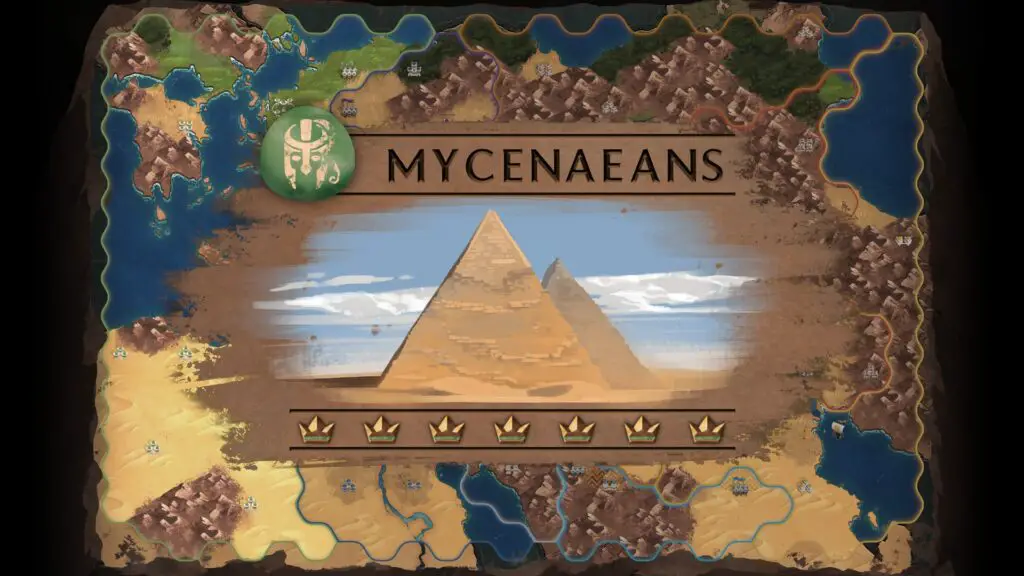
Ozymandias is shaping up to be a delightful bite-sized 3X (there’s no exploring since the map is always revealed). It plays quickly and is by no means easy (I’ve yet to win a game on Scholar, the game’s standard difficulty) so it should provide plenty of challenge for players with busy schedules. Thankfully, the game at least acknowledges its own difficulty, offering players unlimited use of an undo button. This takes you back to the beginning of the turn rather than undoing your last action, so players would do well to be cautious around it. I’ve accidentally clicked it at least once while trying to end my turn.
Currently, only the Middle East map is available in the Next Fest demo, which ranges from Greece and Anatolia to Egypt and Babylon. Several other maps will be available in the final version, ensuring lots of replay value as players seek to master each civilization on each map. These include China, the Fertile Crescent, the Indus Valley, and Greece (among others).
The release date is still TBA, but Ozymandias has an active, engaged development team and the hard work they’re putting in is readily apparent. I’m excited to see the additional maps and maybe even dabble in multiplayer – this is one title that I’ll be keeping a close eye on. Maybe I’ll even win a game before Next Fest ends.


